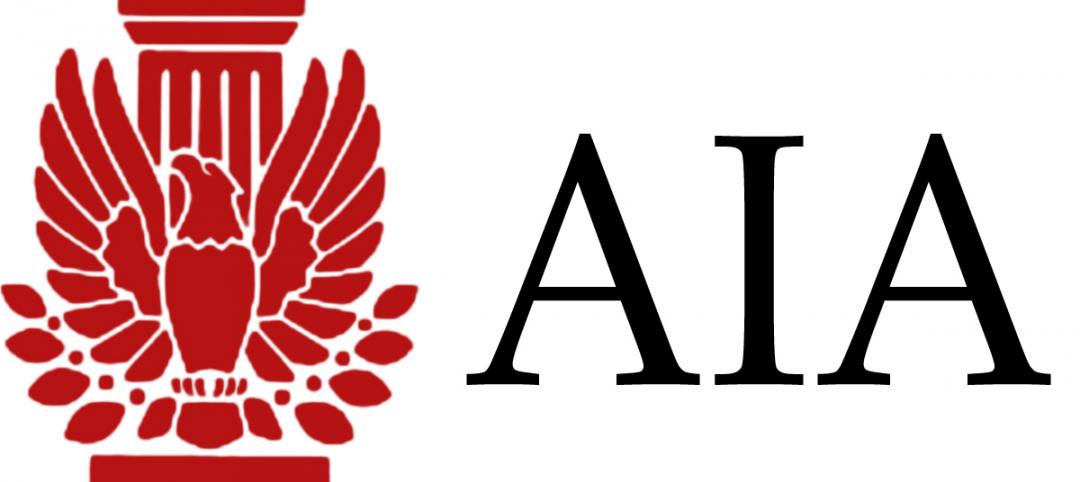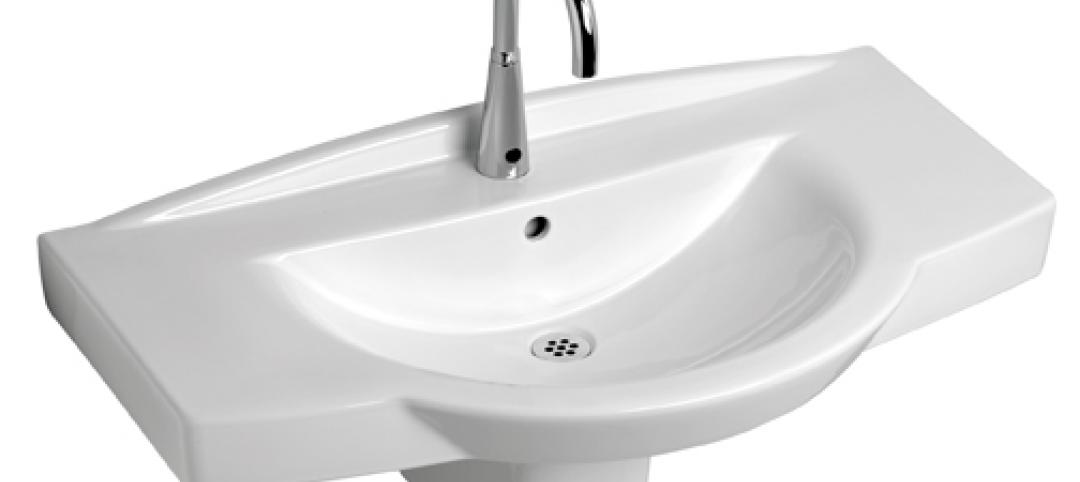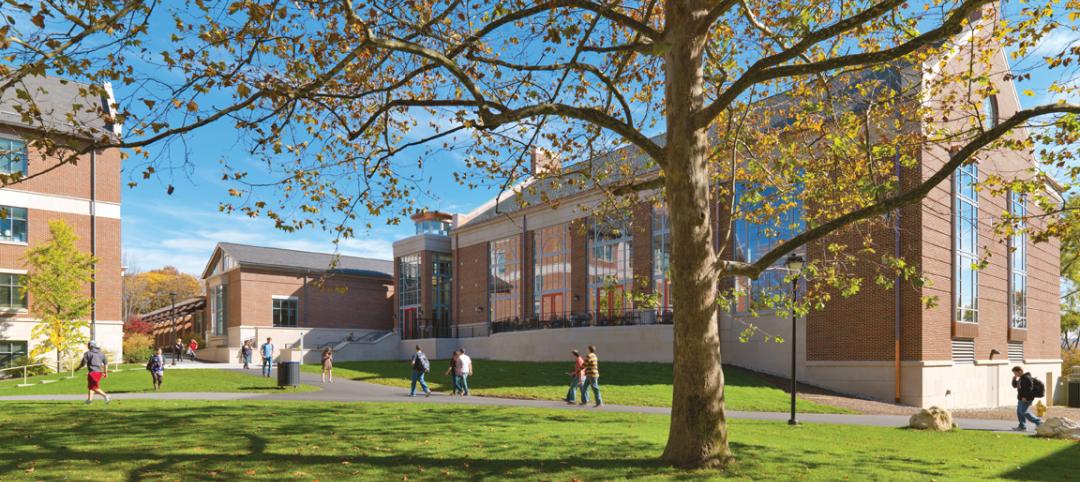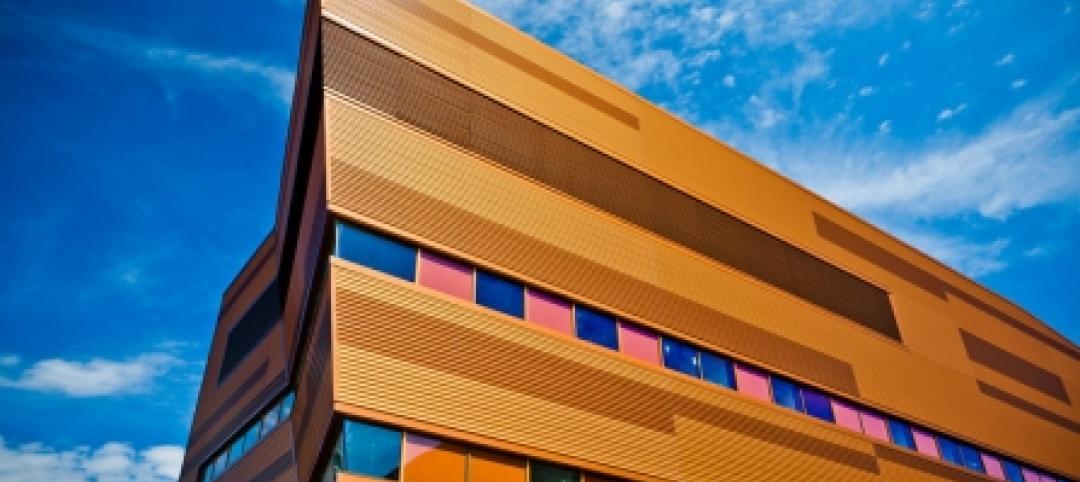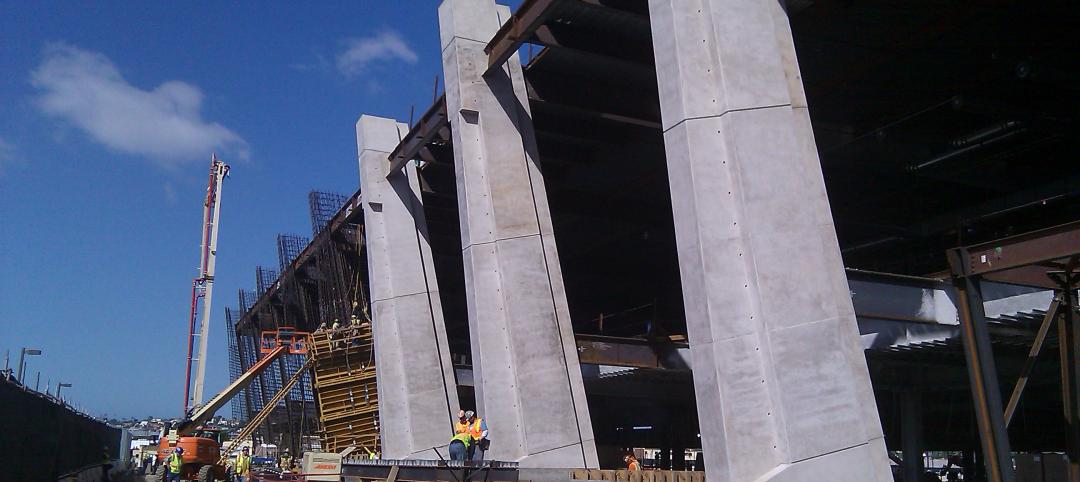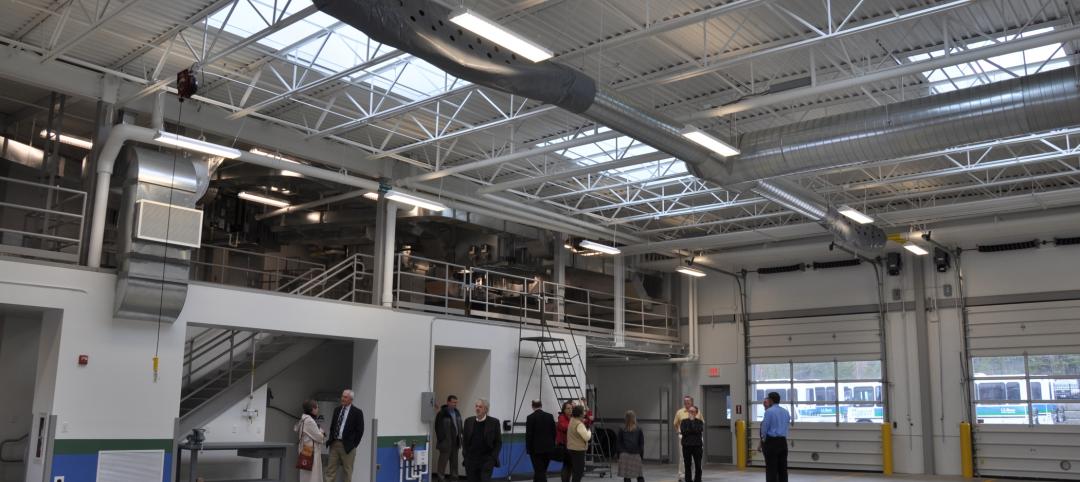CHATTANOOGA, Tenn. — BlueCross BlueShield of Tennessee announced today its certification as a LEED Gold campus, established by the U.S. Green Building Council and verified by the Green Building Certification Institute (GBCI). LEED is the nationally accepted benchmark for the design, construction and operation of high-performance green buildings.
BlueCross’ headquarters, totaling 950,000 square feet of office space, is the largest LEED Gold corporate campus in Tennessee, and the second largest in the nation.
To earn LEED certification, performance measurements must be achieved in five key areas of environmental and human health: sustainable site development, water savings, energy efficiency, materials selection and indoor environmental quality.
According to Bob Worthington, chief strategy officer for BlueCross, the desire from the beginning was to incorporate certain sustainable design attributes in the new corporate campus.
“Our master planning goals always included sustainability, innovation and wellness,” said Worthington. “That translates into not only better controlling cost and increased efficiency, but it also means transforming our work environment to better meet the needs of our employees, members and the health care community.”
The Cameron Hill campus:
- Reduces energy costs by more than 20 percent or $265,000 annually than if the project had been built to minimum code standards.
- Saves 20 million gallons of water annually by using ultra low-flow plumbing fixtures, a water-efficient irrigation system and low water-use plants.
- Improves indoor air quality for employees by employing an underfloor air distribution system and specifying ventilation rates that are 30 percent higher than required by code.
- Decreases storm water runoff by 15 percent.
- Reduces global warming impacts and ozone depletion through the use of a more efficient cooling system that doesn’t use ozone depleting chemicals.
“BlueCross’ LEED certification demonstrates tremendous green building leadership,” said Rick Fedrizzi, President, CEO and founding chair, U.S. Green Building Council. “The urgency of USGBC’s mission has challenged the industry to move faster and reach further than ever before, and BlueCross serves as a prime example of just how much we can accomplish.”
Major partners responsible for the BlueCross corporate campus include architectural firms Duda/Paine, headquartered in Durham, N.C.; HKS, headquartered in Dallas, Texas; Artech Design Group, headquartered in Chattanooga, Tenn; tvsdesign in Atlanta, Ga.; Tune Design in Chattanooga, Tenn. and HGOR, a planning and landscaping design firm out of Atlanta, with local partnership from Sawyer Landscaping.
Green Building Services in Portland, Ore. served as the LEED consultant on the project.
Skanska, a world leader in green construction, along with EMJ Corporation and H.J. Russell & Company, served as the construction management team. Jones Lang LaSalle, formerly The Staubach Company, a national real estate consulting firm with significant LEED experience, served as the project manager for the entire building process.
About BlueCross
BlueCross BlueShield of Tennessee offers its customers peace of mind through affordable solutions for health and healing, life and living. Founded in 1945, the Chattanooga-based company is focused on reinventing the health plan for its 3 million members in Tennessee and across the country. Through its integrated health management approach, BlueCross provides patient-centric products and services that drive health improvement and positively impact health care quality and value. BlueCross BlueShield of Tennessee Inc. is an independent licensee of the BlueCross BlueShield Association. For more information, visit the company's Web site at www.bcbst.com.
About USGBC
The Washington, D.C.-based U.S. Green Building Council is committed to a prosperous and sustainable future for our nation through cost-efficient and energy-saving green buildings. With a community comprising 78 local affiliates, more than 20,000 member companies and organizations, and more than 100,000 LEED Accredited Professionals, USGBC is the driving force of an industry that is projected to soar to $60 billion by 2010. The USGBC leads an unlikely diverse constituency of builders and environmentalists, corporations and nonprofit organizations, elected officials and concerned citizens, and teachers and students. Buildings in the United States are responsible for 39% of CO2 emissions, 40% of energy consumption, 13% water consumption and 15% of GDP per year, making green building a source of significant economic and environmental opportunity. Greater building efficiency can meet 85% of future U.S. demand for energy, and a national commitment to green building has the potential to generate 2.5 million American jobs.
Related Stories
| Jun 1, 2012
New BD+C University Course on Insulated Metal Panels available
By completing this course, you earn 1.0 HSW/SD AIA Learning Units.
| Jun 1, 2012
AIA 2030 Commitment Program reports new results
The full report contains participating firm demographics, energy reduction initiatives undertaken by firms, anecdotal accounts, and lessons learned.
| May 31, 2012
Product Solutions June 2012
Curing agents; commercial faucets; wall-cladding systems.
| May 31, 2012
AIA Course: High-Efficiency Plumbing Systems for Commercial and Institutional Buildings
Earn 1.0 AIA/CES learning units by studying this article and successfully completing the online exam.
| May 31, 2012
2011 Reconstruction Award Profile: Seegers Student Union at Muhlenberg College
Seegers Student Union at Muhlenberg College has been reconstructed to serve as the core of social life on campus.
| May 31, 2012
Perkins+Will-designed engineering building at University of Buffalo opens
Clad in glass and copper-colored panels, the three-story building thrusts outward from the core of the campus to establish a new identity for the School of Engineering and Applied Sciences and the campus at large.
| May 30, 2012
Construction milestone reached for $1B expansion of San Diego International Airport
Components of the $9-million structural concrete construction phase included a 700-foot-long, below-grade baggage-handling tunnel; metal decks covered in poured-in-place concrete; slab-on-grade for the new terminal; and 10 exterior architectural columns––each 56-feet tall and erected at a 14-degree angle.
| May 29, 2012
Reconstruction Awards Entry Information
Download a PDF of the Entry Information at the bottom of this page.
| May 29, 2012
Thornton Tomasetti/Fore Solutions provides consulting for Phase I of Acadia Gateway Center
Project receives LEED Gold certification.
| May 24, 2012
2012 Reconstruction Awards Entry Form
Download a PDF of the Entry Form at the bottom of this page.



